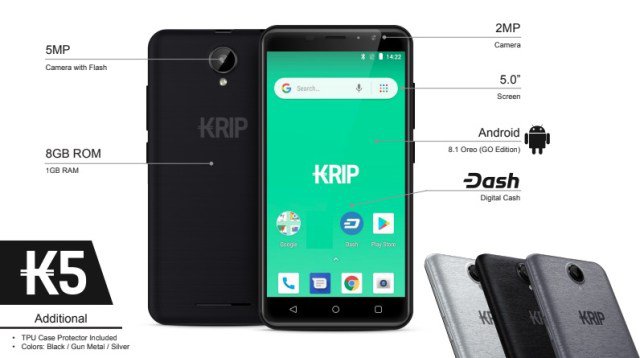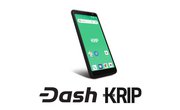/latest/2018/12/dash-adoption-on-the-rise-dash-enabled-smartphone-booming-in-venezuela/
After its announcement in late August, more than 7000 units of the new Dash-enabled phone have already been sold in Venezuela.
The Dash-enabled phone, KRIP, is the result of a partnership between Dash and Kripto Mobile Corporation. Featuring five different models, the KRIP phone comes with a built-in Dash wallet and ecosystem, including some Dash in a paper wallet and several crypto apps such as Uphold (crypto exchange) and Bitrefill (gift card). The Dash Merchant team supports consumers setting up the phone and redeems the Dash from the paper wallet.

“Money is changing, so should your phone” – KRIP Slogan
In order to reach citizens without smartphone or reliable internet access, which still represent a substantial portion of the Venezuelan population, Dash has developed Dash Text. Announced in November, Dash Text allows anyone to create a wallet and transact cryptocurrencies using an SMS-based system.
Over 3000 Dash wallets have already been created using this new system. One of the co-founders of Dash Text, Alejandro Echeverría, has stated that the use of Dash Text is mostly concentrated on rural regions:
“In % rate, rural has almost 100% of Dash Text wallet (natural reasons). But in the city the rate has been very high since people have noticed that using Dash Text is easier than using the normal smartphone wallet (no downloads/ internet required) and since our POS from Dash merchant already has the Dash text feature it is very convenient to use Dash Text for everything.”
Amidst the worst economic crisis in national history, Venezuelan citizens are playing a key role in the adoption of cryptocurrencies. From local grocery shops to major retailers, airline companies to large food chains such as KFC and Subway, there is a long list of merchants who accept cryptocurrency payments (Dash alone claims to have a list of 2400+ merchants).
How Cryptocurrencies are Helping Venezuela
Venezuela prospered under the leadership of former president Hugo Chavez. The growth however, proved unsustainable, as it was overly reliant on oil products, the cornerstone of the Venezuelan economy.
These factors made Venezuela an apparently fertile ground for crypto adoption. President Nicolas Maduro this year decided to experiment with the first ever national cryptocurrency, the Petro – although many have questioned the as well as the credentials of the asset’s whitepaper, as well as the government’s claim that it is backed by oil.
As the bolivar lost most of its value, to the point of being worth less than the paper it was printed on, many Venezuelan citizens have turned to cryptocurrencies to combat inflation. Crypto adoption has also helped citizens with financial inclusion, allowing access to a variety of different financial services – e.g. savings – that otherwise wouldn’t be available.
Buying food, medicine, and basic goods – many times ordered from other countries due to supply shortages – has also been made possible due to cryptoassets.







